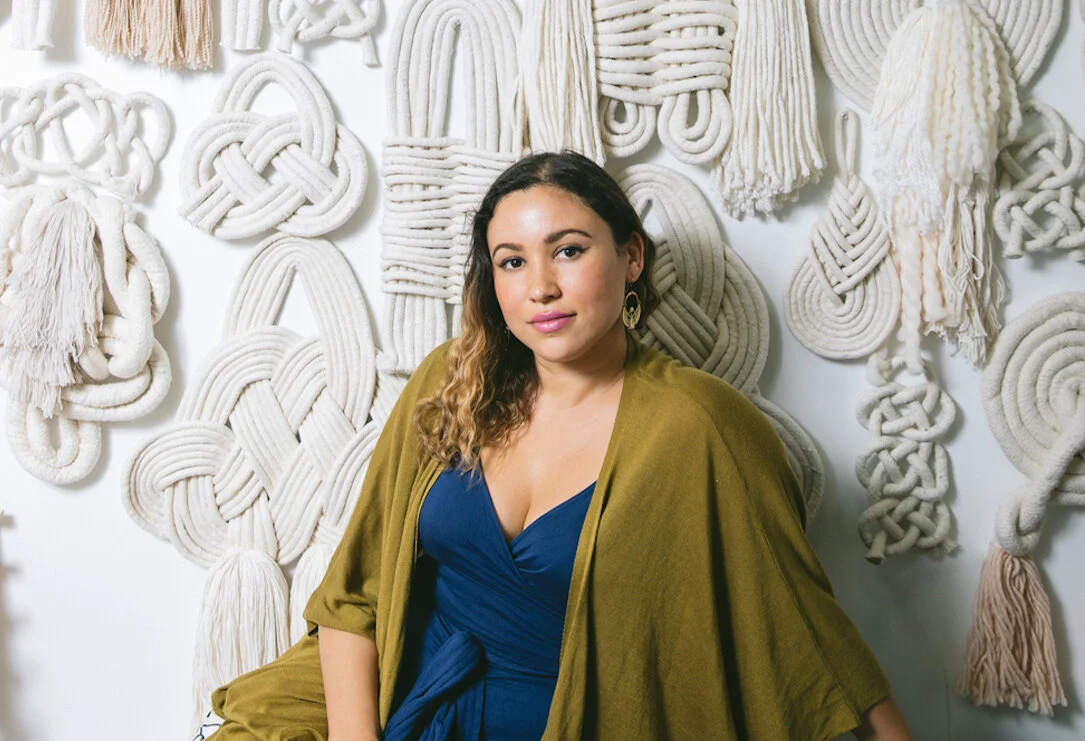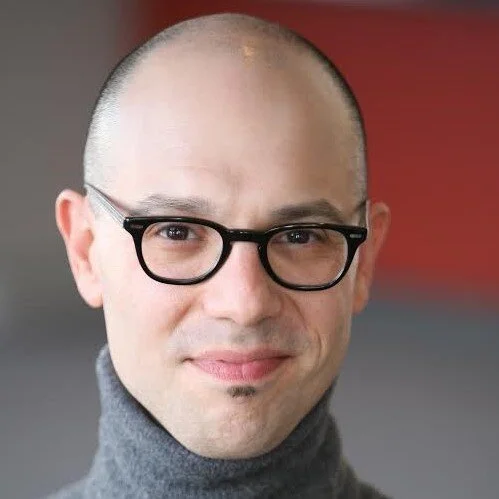Aaron Henne: Theatre in the Time of Quarantine
How theatre dybbuk Copes with COVID
As the country remains locked down and looks toward a slow, tentative reopening, it’s evident that everything has changed. For the performing arts, a host of new questions have arisen. How effective is online performance and collaboration? What will post-quarantine performance look like? How do we keep our audiences engaged in the meantime?
Aaron Henne, artistic director of the Los Angeles-based jewish theatre company theatre dybbuk, talked with Outer Voice about the company’s work and how they’re coping with creating challenging theatre in a challenging time.
“Theatre can ask people to give something of themselves in a certain way. It can say to them, 'You are here, there is no going back, there is only going forward, and so we're going to ask you to lean in and work really hard and stay with us.’”
—Aaron Henne
In many ways, attending a theatre dybbuk performance is like accepting a dare. Packed with stylized movement, dense language and visceral themes, it’s the theatrical equivalent of drinking from a firehose.
This is intentional on playwright and director Aaron Henne’s part. “What excites me as an artist is to give people more than they think they can handle,” he says. “I trust the audience that they can work that hard, and they can hold that many things at once.”
theatre dybbuk’s creation process is complex and deliberate, with a long script development period before any physical work even begins. The team typically meets 30–40 times before even beginning the four-to-five–week performance rehearsal process. As a result, they produce one new piece each year, supplementing it with events, readings, community engagement and training.
From the company’s 2012 debut with cave… a dance for lilith to their upcoming piece breaking protocols, they explore jewish thought, folklore and myth, drawing direct parallels to today’s cultural and political landscape. The work is stunning — part dance, part ritual, it takes on the atmosphere of a conjuring or pandemic dream.
theatre dybbuk and COVID-19
With a development process so complex, the COVID-19 crisis has thrown a serious wrench into the works. breaking protocols is slated to open this August, and Henne is as committed to that as anybody can be right now.
Like all theatre companies and performing artists, theatre dybbuk is coming to terms with making an intimate art in a socially distanced world. Script development meetings have gone online, as have the company’s regular workshops. The show’s choreographer and composer conduct Zoom trainings both for the breaking protocols cast and for the larger dybbuk community.
As for rehearsals, well that’s the sticky part, isn’t it? Henne and company are currently moving forward as they can online, with a plan to decide in the coming weeks if the rehearsal process needs to be adjusted or postponed. In the meantime, Henne says the company will continue “playing with the text through Zoom and learning physical techniques in our separate spaces, while waiting for the time we can gather in space together to really start building the show.”
Henne is cautious to maintain communication and trust with his team. “Even come August, who knows if we'll be able to be in a theatre together,” he says. “And, even if we can, is that the most responsible thing to do?”
“I've reached out to the entire team and asked about some Plan Bs and Cs for opening the show later and if people are still available,” he explains. “I told them honestly, by X date you'll know whether or not we're making that change. It's transparency and communication … respecting our ensemble to say that also means you may be without this employment this summer and plan accordingly. We have to honor the fact that people have planned, 'oh, I'm gonna be working on this show.’”
“We're trying to stay engaged while also still honoring that it's not the same as live theatre. And we don't want to pretend it is.”
With one new show a year, retaining and building an audience is a constant concern for Henne. While regular community workshops keep them connected, the company has also chosen to conduct Friday Facebook Live broadcasts, and they’ve taken planned events online. “We had already planned an in-process event where we were going to share with the audience selections from the developing show in-person. We were even going to do a writing workshop where people could write about their own connections to the themes.” The event has moved online, with a cast reading, chat with Henne, and then an opportunity for attendees to write on their own time and email in their work, which the actors will then perform online.
“Look, it's imperfect, it's who knows,” Aaron laughs. “The computer could crash in the middle of our event. We don't know. But we're trying to stay engaged while also still honoring that it's not the same as live theatre. And we don't want to pretend it is.”
Performance Post-Apocalypse
He’s also interested to see where this massive international pause and its aftermath will take live performance. “We don't know how long it's going to be before we can gather in rooms in close proximity to one another,” he says. “So, what does that mean for how we share space? If theatre is a communal activity that is largely reliant on us being in space together and breathing the same air, and laughing at the same moments and crying at the same moments, what does it mean if for the next two years we need to be six feet apart when in a space together? What does that do to the air in the room? What does that do to how we receive what's happening with the performers?
“I don't know, but I think it's a worthwhile question. And do we run from it or do we embrace it? Does that change how we present work if people have to be six feet apart? Do we embrace this immersive idea that there are audiences of 10 and they're having really interesting intimate experiences that feel much more personal because not everyone can experience it in larger numbers at once? I’m curious to see what’s coming. I’m curious to see if we return to the idea of theatre as ritual.”
Want to learn more? Join the Outer Voice Not-So-Secret Society for an extended article from this interview, plus other great benefits.
For more on theatre dybbuk, visit their website.
Register for their May 13 in-process presentation for breaking protocols.
Check out the Judaism Unbound podcast for a great interview with Aaron Henne.






